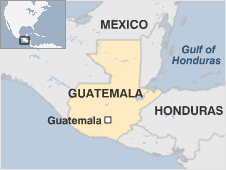
Today I’d like to share with you a paragraph from a commentary on Mark’s Gospel. This was written in 1974 by William L. Lane, and it deals with the reason Jesus taught in parables to describe the Kingdom of God. Although this paragraph is full of academic-sounding language, I promise it will be worth reading:
Basic to parabolic utterance is the recognition of the two strata of creation: the natural and the redemptive. Through parables Jesus called attention to what had previously been hidden in the redemptive order. The realism of his parables arises from the certainty that no mere analogy exists between the natural and redemptive order, but an inner affinity, because both strata originate in the purpose of God. That is why the Kingdom of God is intrinsically like the daily natural order and the life of men. The createdness of the natural order thus becomes the vehicle for the tenor of the redemptive. A contemplation of the one order can reveal or illumine truths of the other, because both reflect God’s intention.
Wow! Allow me to try to unpack this paragraph.
Jesus taught in parables because he knew there is a connection between the world as it is (“the natural”) and the world as God intends it to be (“the redemptive”). Surely God wants to redeem his creation, including sinful people like us. In order to do that, God chose to reveal, through Jesus, what this redeemed life looks like. When Jesus used parables to teach his disciples and the crowds, he was using a form of speech that they could connect with. But that’s exactly the point: God’s kingdom is not going to replace this world. Instead, God intends to redeem this world (“the natural order”) by transforming it – and people in it, like us – so that it will be pleasing to him.
So we can reflect on the world around us and learn something about how God intends to bring his kingdom in its fullness. This is how Jesus taught: through parables that use our everyday lives to convey deep, meaningful truths about the Kingdom of God. For instance, as we’ll see this Sunday, the Kingdom of God is like a small, humble seed that grows mysteriously into a large, important plant.
On the other hand, we can reflect on God’s work of redemption through Jesus’s death and resurrection, and through that reflection we can discover truths about this created world. For example, God has brought about salvation through Jesus Christ and is bringing his kingdom into this world; therefore, this created world fundamentally matters to God and should matter to us as well.
In the end, to quote William Lane once again, “both strata originate in the purpose of God.” That is, both the created world and the work of redemption through Christ are part of God’s ultimate plan for the universe. They are intimately connected to each other because God uses both for the best purpose possible: to bring himself glory and honor.
–Pastor David








